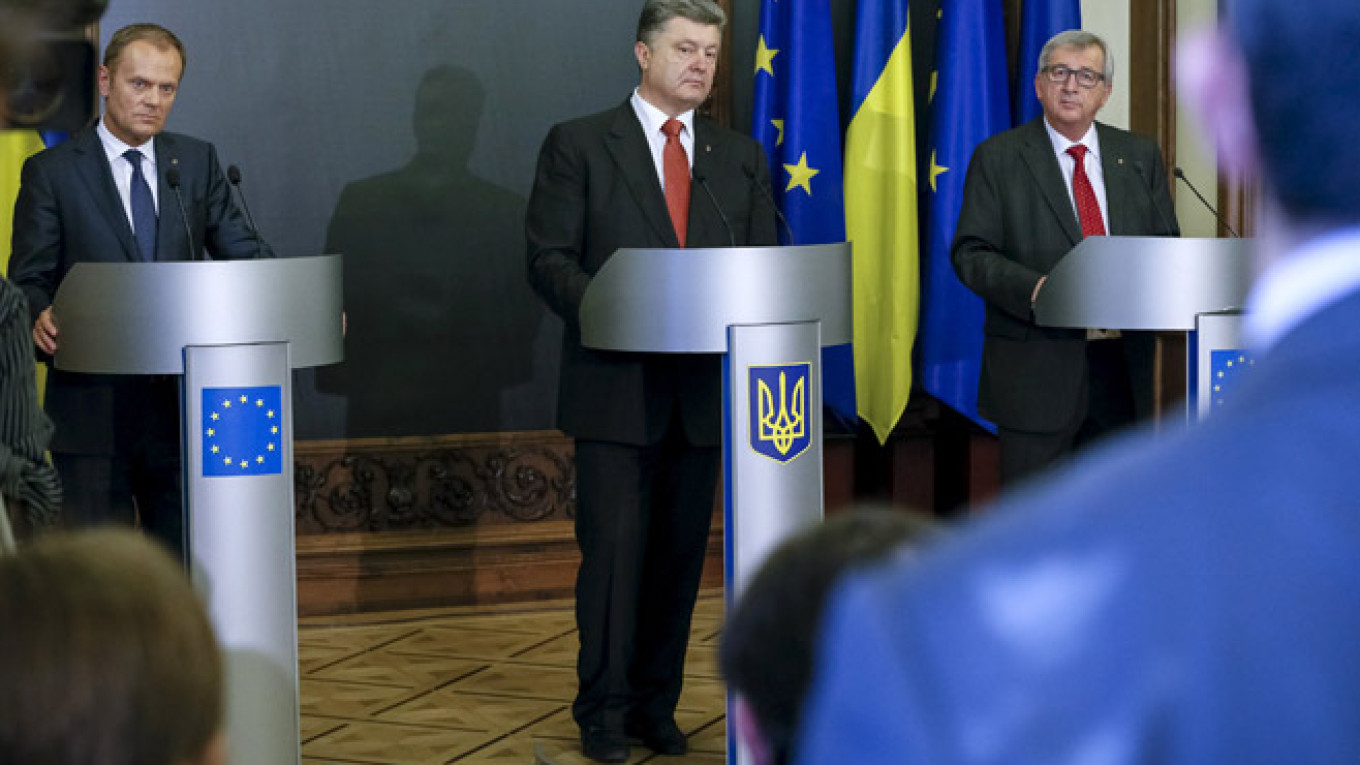BRUSSELS — European Trade Commissioner Cecilia Malmstrom said Thursday that a planned EU-Ukraine trade deal would be implemented from the start of 2016 despite Russian calls for further delay and threats of retaliation.
Russian President Vladimir Putin has warned that Moscow will curtail Ukraine's access to vital Russian markets if Kiev implements any part of a trade deal with the European Union.
"It is not for Russia to decide," Malmstrom told reporters on arrival for a meeting with EU trade ministers. "There has been a very clear statement by the European Union, by member states, by the Ukrainians … that the first of January 2016 is the date."
The start of 2016 is already a year later than planned as Russia seeks to oppose European efforts to integrate Ukraine and move it out of Moscow's sphere of influence. Russia had been pushing for the deal to be postponed by at least one more year.
The EU-Ukraine deal is at the heart of a dispute that has grown from a tug-of-war between Brussels and the Kremlin over Kiev to sanctions, the annexation of Crimea by Russia, armed conflict in eastern Ukraine, and concern about a new Cold War.
The European Union says it is willing to discuss Russian trade concerns and will hold a meeting with Russia and Ukraine later this month, the latest in a series of three-way talks.
According to EU officials, Russia wants to remove more than 2,000 Ukrainian products eligible for duty-free access to the European Union, tearing up about a quarter of the agreement.
Russian companies are also concerned they will not be able to export to Ukraine after Ukraine adopts higher EU standards as part of its implementation of the pact.
Brussels hopes to assuage Russian concerns about the pact, which is now a legal treaty that cannot easily be changed.
If Russia did retaliate and substantially raise tariffs, that could mean 3 billion euros ($3.4 billion) a year in lost business for Ukraine, which exports mainly steel, coal, chemicals and grains to Russia, EU diplomats say.
A Message from The Moscow Times:
Dear readers,
We are facing unprecedented challenges. Russia's Prosecutor General's Office has designated The Moscow Times as an "undesirable" organization, criminalizing our work and putting our staff at risk of prosecution. This follows our earlier unjust labeling as a "foreign agent."
These actions are direct attempts to silence independent journalism in Russia. The authorities claim our work "discredits the decisions of the Russian leadership." We see things differently: we strive to provide accurate, unbiased reporting on Russia.
We, the journalists of The Moscow Times, refuse to be silenced. But to continue our work, we need your help.
Your support, no matter how small, makes a world of difference. If you can, please support us monthly starting from just $2. It's quick to set up, and every contribution makes a significant impact.
By supporting The Moscow Times, you're defending open, independent journalism in the face of repression. Thank you for standing with us.
Remind me later.


